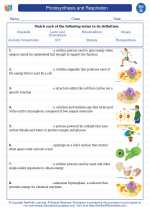Photosynthesis and Respiration -> nucleic acids
Nucleic Acids
Nucleic acids are macromolecules that are essential for all forms of life. They are composed of smaller units called nucleotides, which are made up of a sugar molecule, a phosphate group, and a nitrogenous base. There are two main types of nucleic acids: deoxyribonucleic acid (DNA) and ribonucleic acid (RNA).
Structure of Nucleic Acids
DNA is composed of two strands that form a double helix structure, while RNA is usually single-stranded. The sugar in DNA is deoxyribose, while in RNA it is ribose. The nitrogenous bases in DNA are adenine (A), thymine (T), cytosine (C), and guanine (G), while in RNA, thymine is replaced by uracil (U).
Functions of Nucleic Acids
DNA contains the genetic instructions for the development, functioning, growth, and reproduction of all known organisms. It is responsible for the inheritance of traits. RNA plays various roles in protein synthesis, including carrying the genetic information from DNA to the ribosomes, where proteins are synthesized.
Study Guide
- What are the building blocks of nucleic acids?
- What are the two main types of nucleic acids?
- Describe the structure of DNA and RNA.
- What are the functions of DNA and RNA?
- Explain the process of protein synthesis involving nucleic acids.
- How does DNA store genetic information?
- What is the role of nucleic acids in heredity?
◂Science Worksheets and Study Guides Seventh Grade. Photosynthesis and Respiration
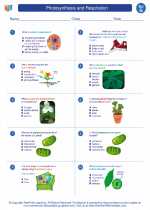
 Worksheet/Answer key
Worksheet/Answer key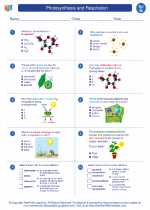
 Worksheet/Answer key
Worksheet/Answer key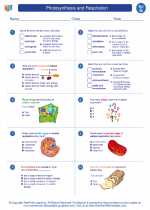
 Vocabulary/Answer key
Vocabulary/Answer key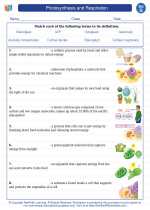
 Vocabulary/Answer key
Vocabulary/Answer key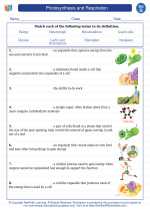
 Vocabulary/Answer key
Vocabulary/Answer key